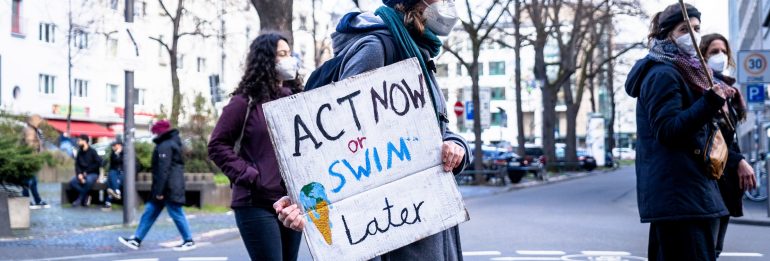27 September, Strasbourg — The echoes of the 2017 wildfires, which claimed over 100 lives in central Portugal, may have faded from global headlines, but their scars remain. For Sofia Oliveira, a university student, the memories of that fiery devastation mark the day she decided it was "now or never" to raise her voice against the accelerating threat of climate change.
Fast forward to today, Oliveira is among six young Portuguese activists, ranging in age from 11 to 24, who are stepping into the European Court of Human Rights, setting the stage for a precedent-setting lawsuit. The defendants? Not one, but 32 European governments they allege are violating their human rights by failing to combat climate change effectively.
A Groundbreaking Courtroom Battle
This landmark case is the first of its kind at the European Court of Human Rights and, if successful, could force nations to overhaul their environmental strategies, paving the way for reduced emissions and greener infrastructure. Considering that the court's decisions are legally binding, the consequences of a ruling in the young activists' favor could ripple across the continent, demanding substantial policy shifts and potentially incurring significant penalties for non-compliance.
Recent years have witnessed the courtroom becoming an increasingly influential arena for environmental activism. A case in Montana last month saw state agencies held accountable for fossil fuel developments that endangered young residents' right to a "clean and healthful environment."
Why This Fight? Why Now?
Recalling the early days of their decision to embark on this legal journey, Sofia reminisced about wearing braces and her younger brother André being shorter than her. For André, now standing taller and at 15, the battle represents almost half of his lifetime. But it's not just personal growth that's evident; their surroundings bear testament to the harsh reality of climate change. The once-kilometer-long Praia do Norte beach near their home now measures a meager 300 meters, a victim of coastal erosion.
Joining Sofia and André are siblings and cousins from the wildfire-prone region of Leiria in central Portugal. These young warriors' pleas are not merely emotional but backed by irrefutable scientific evidence. Portugal's changing climate patterns mirror those of other European nations, indicating a gradual encroachment of the Sahara's climate. With global warming continually straying from the benchmarks set by the 2015 Paris climate accord, these activists hope to use the legal framework to realign international commitments.
Human Rights vs. Climate Inaction
The plaintiffs, assisted by the Global Legal Action Network (GLAN), detail the tangible repercussions of climate change: interrupted sleep, hindered concentration, restricted outdoor play during heatwaves, and schools closing due to unbreathable wildfire smoke. For some, underlying health conditions amplify the peril of escalating heat and pollution.
However, these grievances are met with resistance. Gerry Liston of GLAN accuses the governments of trivializing the accusations, an assertion Sofia reinforces, lamenting how authorities sideline climate concerns.
A Global Movement?
While the Portuguese youths are pioneering this battle in Europe, they are not alone in their quest. Around 2,000 climate change-related cases have emerged since 2015, with a quarter of those filed between 2020 and 2022.
Notably, the Dutch Supreme Court's 2019 ruling in the Urgenda Foundation case demanded the Netherlands strengthen their emissions reductions. This victory not only led to the shuttering of coal plants by 2030 but also saw the launch of initiatives focused on renewable energy and energy conservation.
Dennis van Berkel, Urgenda's legal counsel, pinpointed the crux of the issue, underscoring how governments often prioritize "political convenience" over heeding climate scientists' warnings.

We need to heed the warnings of climate scientists so that it is not too late
Looking Ahead
While the young Portuguese activists are not seeking monetary compensation, their wait for justice might be prolonged, possibly extending to 18 months. However, with the court fast-tracking the proceedings in 2020 and the successful Urgenda precedent, hope remains alive.
In an era of rapidly shifting climate dynamics, the confrontation between these young warriors and state apparatuses underscores a pivotal question: Can the courts force governments to prioritize the planet over politics? Only time will tell.
©GlobalCO2.uk





